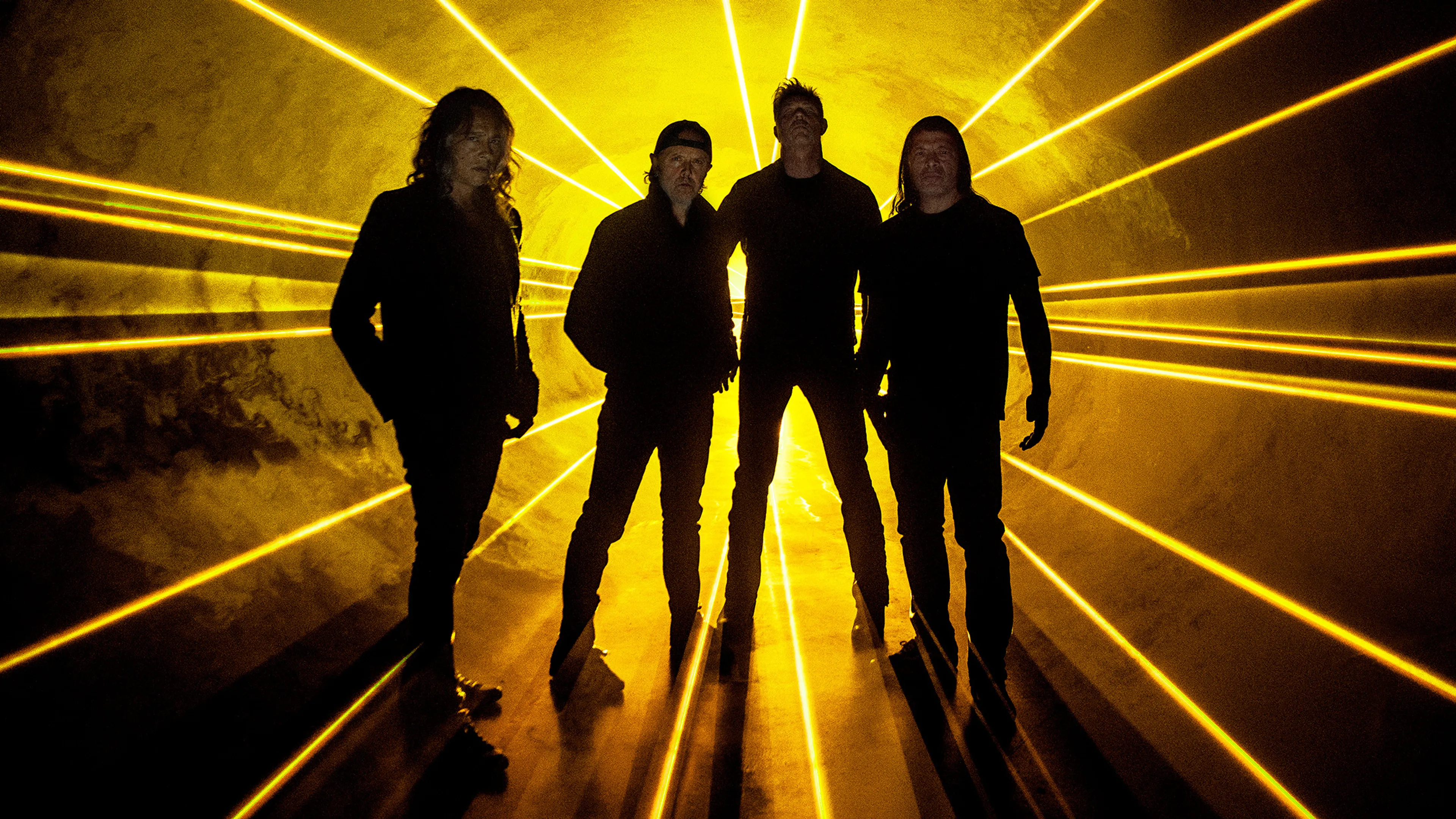As the months went by and the world began to change, the band met in November 2020 for an All Within My Hands benefit broadcast, which marked the first time they were actually in the same space working on new material. Very much a stop-start process from then on out, with members meeting up before going back to their families again, and fulfilling some previously cancelled shows in 2021, slowly but surely, a record came into view.
“Sometimes, there are more direct or obvious visions that are laid out in front of you, and other times it’s more instinctual and unspoken,” Lars says of the process. “When we made [2008’s] Death Magnetic, it was the first record with Rick [Rubin, producer], and the process was very much about talking about what we’re doing, who we were, where we’d been and where we were going – there was a lot of conversations about identity and direction. Each record is always its own journey and its own entity, this record was almost like we stumbled into it.”
“When the music showed up, it felt like it was going in its own direction,” remembers Kirk, fondly. “It felt like everyone got out of the music’s way and just let it unfold, which was a first for us, because a lot of times we’ve felt like we needed to manipulate the music to what we think it should be conceptually, but there was none of that this time. The riffs showed up, they came together, and we just got out of the way. And that’s the way I like to work – I like to let the music just take off, and I’m merely a guard rail to keep it on track.”
As Lars explains, there were no specific objectives or “locker room pep talks” about direction, offering that it was instead “pretty loosey goosey” as far as planning goes. Surrounded by such uncertainty in the outside world, it almost felt like they had to be more intuitive, to not overthink things, and, as Kirk says, let the music flow.
“It started taking shape, but there wasn’t a goal in mind,” says Lars. “I have a wary relationship with goals because I think a big part of what you’re doing when you’re creating has to come from the heart, from the gut, or whatever body part it comes from. If it gets too heavy or cerebral then it gets a little forced, and there have been times in the past where we have tried too hard. I think Hardwired… and this record was very much about making the songwriting process as organic as possible.”
